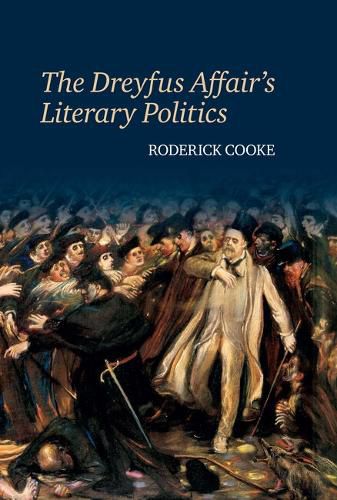Readings Newsletter
Become a Readings Member to make your shopping experience even easier.
Sign in or sign up for free!
You’re not far away from qualifying for FREE standard shipping within Australia
You’ve qualified for FREE standard shipping within Australia
The cart is loading…






The Dreyfus Affair's Literary Politics offers a new interpretation of writers' political engagements in the crisis that ended the French nineteenth century, following the wrongful treason conviction of Captain Alfred Dreyfus. Emile Zola and three writers connected to him - Ferdinand Brunetiere, Henry Ceard and Saint-Georges de Bouhelier - drew on their affinities and antagonisms concerning Zola's naturalist fiction to shape their political discourse in the Dreyfus Affair. Zola and Bouhelier were Dreyfusard, Brunetiere and Ceard anti-Dreyfusard, yet in each case they transformed a vision of what literature should be into arguments about French national identity, the proper relationship between literary and political thought, and the tensions between individual rights and raison d'etat. Developing a method entitled 'microhistories of ideas,' Cooke shows that a longitudinal approach to each writer's career yields a set of central unit-ideas that reappear in the new, emotive context of the Affair. Through close readings of material such as pamphlets, newspaper columns and aesthetic essays, the significance of often ephemeral writing to the larger questions of intellectual history - and to the outcome of the Dreyfus Affair itself - becomes clear.
$9.00 standard shipping within Australia
FREE standard shipping within Australia for orders over $100.00
Express & International shipping calculated at checkout
The Dreyfus Affair's Literary Politics offers a new interpretation of writers' political engagements in the crisis that ended the French nineteenth century, following the wrongful treason conviction of Captain Alfred Dreyfus. Emile Zola and three writers connected to him - Ferdinand Brunetiere, Henry Ceard and Saint-Georges de Bouhelier - drew on their affinities and antagonisms concerning Zola's naturalist fiction to shape their political discourse in the Dreyfus Affair. Zola and Bouhelier were Dreyfusard, Brunetiere and Ceard anti-Dreyfusard, yet in each case they transformed a vision of what literature should be into arguments about French national identity, the proper relationship between literary and political thought, and the tensions between individual rights and raison d'etat. Developing a method entitled 'microhistories of ideas,' Cooke shows that a longitudinal approach to each writer's career yields a set of central unit-ideas that reappear in the new, emotive context of the Affair. Through close readings of material such as pamphlets, newspaper columns and aesthetic essays, the significance of often ephemeral writing to the larger questions of intellectual history - and to the outcome of the Dreyfus Affair itself - becomes clear.